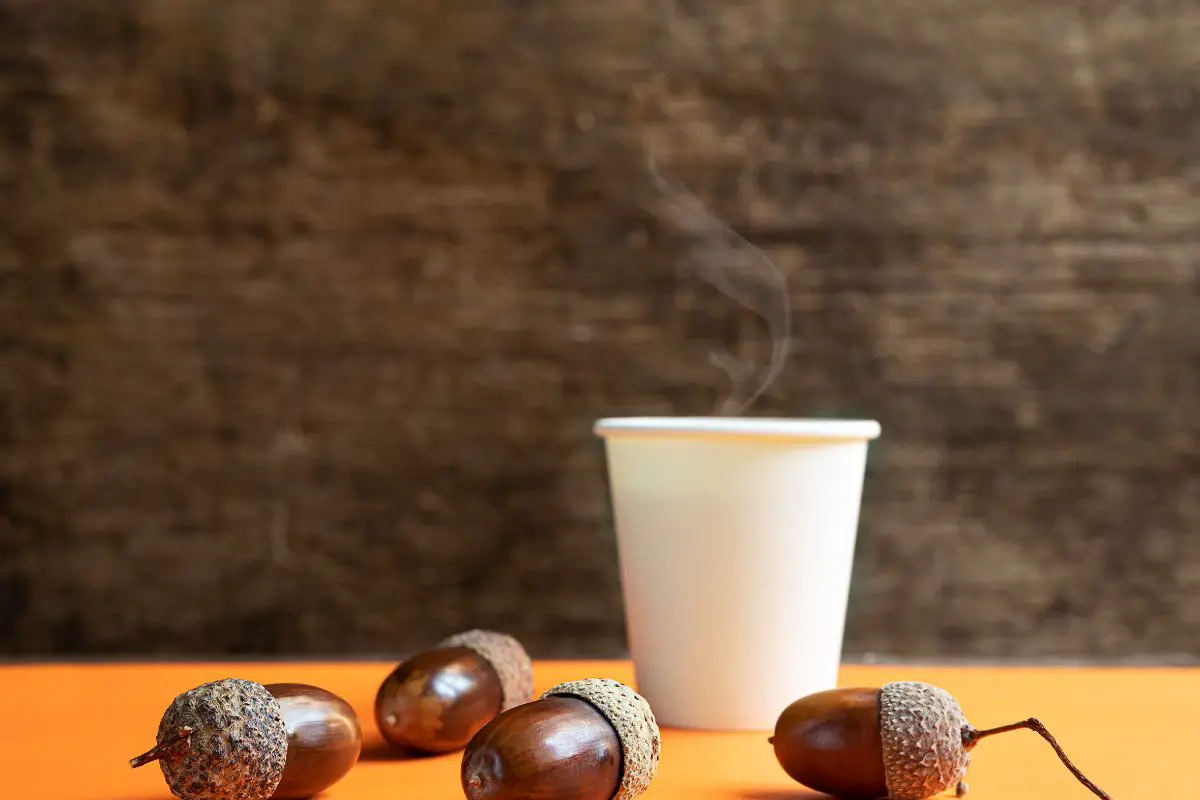You have probably heard about several coffee substitutes. Some advocate for chicory root coffee while others recommend roasted grain coffee. But have you ever heard about acorn coffee? Acorns have been consumed for centuries now. They were used as a source of food during famine, especially by the ancient Japanese, English, Iberians, and Greeks. Today, acorns are used to make acorn coffee.

Acorn coffee is preferred as an alternative to regular coffee due to its caffeine-free nature. You can drink several cups of acorn coffee without worrying about the potential side effects of caffeine. But what does acorn coffee taste like? When brewing acorn coffee, you can visually tell the difference between the two. However, you can only tell the taste difference when you taste the coffee. In this article, we will discuss acorn coffee in detail, including its taste and smell.
What are Acorns?
Before we discuss the taste of acorn coffee, it will help to discuss what they are briefly. Essentially, acorns are small rounded nuts that grow on oak trees. Oak trees are commonly found in North America.
Acorns were a food item among Native Americans before the introduction of sugar cane in New England during the colonial period. Acorns may be eaten as food. Alternatively, they can be used in baking, cooking recipes, and making acorn coffee.
To make acorn coffee, you grind the acorns and mix the acorn powder with hot water. You can enhance the drink further by mixing the floor with other ingredients such as ground barley tea leaves, rye flour, and chicory root among others. You can also use acorn flour as a wheat alternative to make sauces, pastries, bread, and soups.
What Does Acorn Coffee Taste Like?
Acorn coffee tastes a little bitter. It has an intense nut flavor with hints of caramel. It is not very different from other nuts such as pecans and almonds in terms of flavor. They are typically boiled or roasted to enhance their flavor.
Nutritional Benefits of Acorns
Acorns are highly nutritious. They are among the most nutrient-dense foods. Acorns are rich in fat, fiber, and protein. Also, they contain vitamin C, iron, and calcium. Also, they help in maintaining healthy blood sugar levels.
Additionally, acorns are a great source of manganese. Manganese helps improve tolerance to carbohydrates by improving insulin action. Also, acorns contain an enzyme known as quinone reductase, which helps protect the DNA against free radicals.
You can take acorns after exercise to help in muscle recovery, thanks to their rich fat and protein content.
Can You Eat Acorns?
You can eat acorns or use them to make acorn coffee. Also, you can use ground acorn powder in baking and other recipes. However, you should be cautious when eating acorns. Acorns are rich in tannins. Tannins can interfere with the absorption of proteins. Also, tannins can cause digestive problems in some people.
If you eat undercooked or raw acorn caps, you may experience nausea, diarrhea, and vomiting. Thus, it is advised to soak acorns overnight before cooking them. When you soak acorns, you leach out the tannins to make them safer for consumption. Also, leaching them reduces their bitterness.
You can enhance their taste and flavor by roasting or boiling them before grinding them. Preferably, roast them in the oven as you will not have to add any oil. Also, roasting them gives them a crispy texture and chewiness.
Related Article: